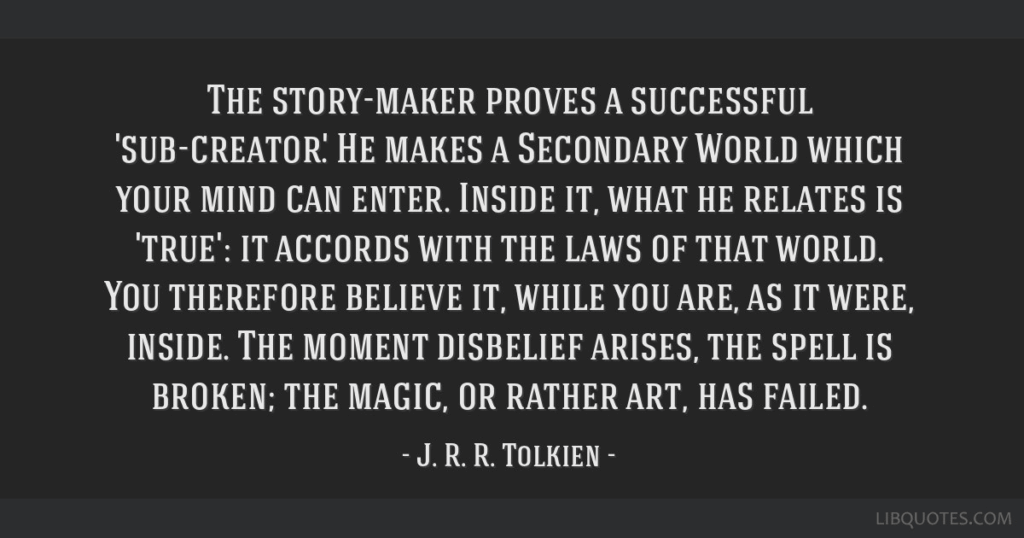In the domain of fantasy virtual worlds and MMORPGs, the profound alignment of game content with the cultural, mythological, and historical ethos of its intended audience is crucial for deepening player engagement and immersion.
This principle suggests that the design of game worlds, narratives, characters, and aesthetics should profoundly be rooted in the mythological and cultural backgrounds familiar to its primary audience. For English-speaking players of British descent and Europeans, content that draws inspiration from the medieval legends of Europe, the mythic narratives of J.R.R. Tolkien, the sword and sorcery of Howard’s Conan the Barbarian, and the foundational elements of role-playing games like Dungeons & Dragons resonates on a deep level.
This profound connection may stem from what Carl Jung identified as the collective unconscious, a set of shared memories and ideas inherent in the human psyche, passed down through generations. Jung’s pioneering work in psychology suggests that these shared mythologies and archetypes form a part of our unconscious mind, influencing our preferences and behaviors in ways we might not be fully aware of.
This principle is further emphasized by the integration of elements from European fairy tales, folklore, Arthurian legends, Greek and Roman mythologies, and other regional narratives that have historically shaped the high fantasy genre. However, when fantasy virtual worlds and MMORPGs venture too far from these traditional medieval European fantasy settings, such as incorporating science fiction themes or mythologies alien to this cultural foundation, player engagement and satisfaction can significantly wane.
Notable examples of this phenomenon include EverQuest’s third expansion, “Shadows of Luclin,” which introduced science fiction themes that felt disconnected from the game’s traditional fantasy roots. This thematic shift alienated a segment of the player base, illustrating the importance of maintaining a consistent thematic core that aligns with the collective unconscious expectations of its audience. Similarly, EverQuest’s expansions “Gates of Discord” and “Omens of War” transported players to realms devoid of the high fantasy content that initially captured their imaginations, and was not well received by players, further evidencing the critical role of thematic fidelity in player retention and satisfaction.
In the fantasy virtual world of World of Warcraft, the first expansion, “The Burning Crusade,” ventured into realms with non-fantasy content and locales, which led to a mixed reception among players. Former Blizzard game designer and vice president Jeff Kaplan noted that Nagrand, with its pastoral, sunny, and cheery content, was far more popular than other zones, which featured gloomier, alien-like, and lunar landscapes. This preference highlights the player base’s inclination towards content that remains true to traditional high fantasy themes.
The same principle applies universally, with Asian players showing a marked preference for MMORPGs that incorporate Asian fantasy motifs and historical narratives. This suggests that the principle of cultural congruence in game design is not limited to a single region but is a global phenomenon that takes into account the unique cultural and mythological backgrounds of different player bases.
In conclusion, the success and longevity of fantasy virtual worlds are intricately linked to their ability to resonate with the collective unconscious and mythological expectations of their audience. By embracing Carl Jung’s insights into the collective unconscious and ensuring a strong alignment with cultural mythologies, game designers and virtual world builders can foster a more immersive and engaging experience, deepening players’ connections to the virtual worlds they inhabit.
–Wolfshead
©Wolfshead Online 2024







I wanted to add a personal note to this article. It’s been a while since I have written about fantasy virtual world design. The reason is that I have been taking up arms in the culture war that has been perpetrated by the forces of darkness.
This is a war that people on my side of the fence never wanted, but when war comes, either you answer the call, you run or you hide. I chose to fight.
I started this website because I wanted to contribute to the betterment of fantasy virtual world design. The opportunity cost of the battle to fight off wokeness and cultural Marxism has taken its toll on all of us. All I wanted to do was write articles about MMORPG design and virtual worlds. The time has come. While I do have some more anti-woke articles in the can that I need to get published, I’ve decided to start writing more about design as woke culture collapses around us.
After we reclaim Western civilization we’re going to need creatives that understand how everything works. We’re going to need godly people to rebuild what has been destroyed after decades of neo-Marxism, feminism, and alphabet depravity.
Most of the new game developers have no clue; you can see it in the terrible quality of video games that have been released lately. They don’t understand or appreciate the contribution of Tolkien or the giants that went before them in the world of high fantasy literature and the world of RPGs in the video game industry. All they know and care about is their sick freakish woke existence.
They need to be set straight and we as old-timers need to do it. I’m going to get back to the basics and try to achieve this the best I can and at least leave a legacy of articles that will serve as a roadmap for future designers that will emerge in a new non-AAA video game industry.
Good change is coming. Buckle up.
The reason I hate Woke content is that it interrupts my immersion in the same way ‘real-world’ Easter Eggs in games do. I hated Haris Pilton in Outland, not because I hate Paris Hilton, but because it signified to me that the developers no longer took their own product seriously. There was some of that too in original WoW (Jailbreak in BFD made to look like an episode of Oz) and it was horrible there too. Woke ideology in entertainment has the same effect on me. I don’t want to be reminded that I’m an evil white male when enjoying myself.
I’ve noticed a worrying trend wherein books, films, and games now feel compelled to make concessions to Woke ideology. This disclaimer from the revised version of The Oregon Trail reads like one of those pointless Land Acknowledgement prayers students have to perform at college:
“In creating this new game in the beloved The Oregon Trail series, we were determined to better depict Native American perspectives. For Indigenous Peoples, westward expansion was not an adventure but an invasion”
Basically to play the game you have to allow yourself to be lectured beforehand (this disclaimer appears the first time you load up the game so you can’t avoid it). Now, instead of reading and nodding in insincere empathy like I was supposed to, it made me think ‘fuck this crap’ and then I switched off the game and put down the controller, never to return.
It’s the same with LGBQT issues. What was once an aesthetic choice (liking people of the same sex) has now become an orthopedic movement whereby criticizing gender-bending people is considered the same as tormenting disabled people. I also suspect that much of Woke ideologist is not about helping the so-called oppressed, but about accruing power for a government hell-bent on totalitarianism:
https://areomagazine.com/2023/03/15/cute-authoritarianism/
Well said!
The wokeness is so blatant and relentless that I feel we live in a theocracy. Imagine the howls of outrage from the left if video game developers mentioned Jesus in every story?
There is no separation of theocracy and state for them. They truly believe that their idealogy/religion needs to be infused into everything they do at home and at work.
They are evangelists and missionaries spreading the cultural Marxist gospel.
Notice too that all the wokesters have an invincible aura of self-righteousness. They truly believe that ridding the world of imaginary racism/bigotry will make this a better world, when in fact it is they who are looking for racism/bigotry to validate their existence.
These woke people don’t care about the sacredness of your leisure time. They believe they must lecture you and hector you until you comply.
The problem is that our culture has shifted away from one of godliness to the amorality of atheism. Humanity is intrinsically spiritual. These people have a God shaped hole in their hearts and the easy morality of virtue signaling is more appealing to them than Christianity.
But you can only fool the people for so long. The public HATES all this woke crap that is being forced down their throats. VICE magazine just went bankrupt. People are voting with their feet. It’s going to take a few more years for all of this wokeness to get flushed down the proverbial toilet of civilization.
I completely agree with you about the overuse of pop culture references in WoW. I can’t believe Metzen didn’t put his foot down to stop this. It completely breaks your immersion.
It’s lazy and sophomoric.
Excellent Tolkien quote, I also strongly support your personal note. This is why Black Desert just doesn’t do it for me, it is simply Asian. Guild Wars was meant to bridge the gap between Western and Asian audience, but was only really successful in the West, and even there not quite meeting high expectations after Guild Wars 1.
This kinda makes me wonder, constantly yelling “embrace the diversity”, but they still try serving everyone the same… hehe. Just doesn’t work.
I am playing single player games these days.
A world I didn’t quite get in: The Elder Scrolls. Something doesn’t suit me there. I liked the single player games, but not the MMO.
Burning Crusade: Yeah, I hated that Spaceship stuff… so very much. I didn’t like Nagrand, there was something off, as it was so pastoral, with floating places everywhere, didn’t quite fit. Felt even more alien than the alien looking zones. It was an alien world, after all, Draenor. I didn’t like Cataclysm or Pandaria, but returning to WoW in Warlords of Draenor before it became Outland was quite fun!
After Legion I gave up in the Beta of Battle for Azeroth. That woke story trash, wonder how much of it was Danuser, ugh….
The ongoing culture war is trashing literature, television, video games, it’s a tragedy. What we got already many years ago was often way better than … well, unfortunately I find no better games today. A sad thought.